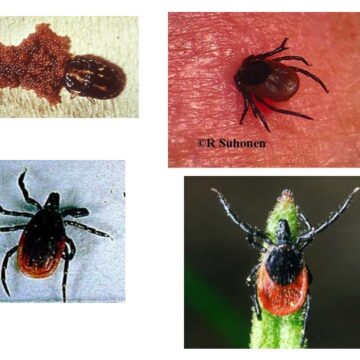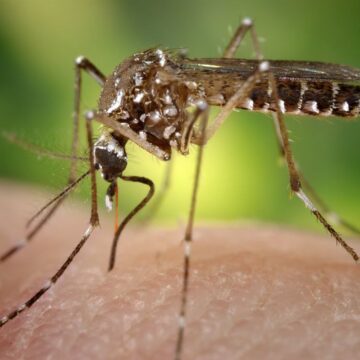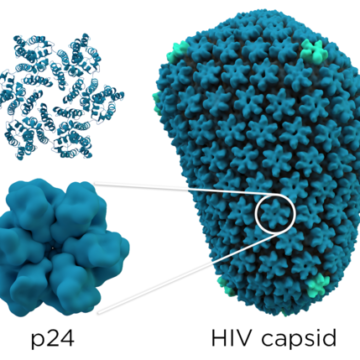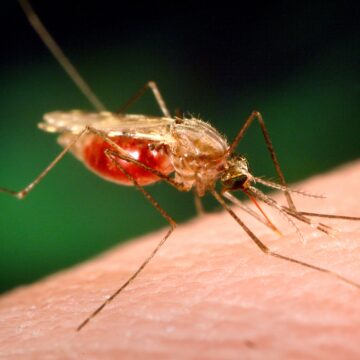Adults suffering from acute ischemic stroke are advised to consider tenecteplase as a therapy option by the National Institute for Health and Care Excellence (NICE). This choice represents a major advancement in the treatment of strokes and may have a big effect on patient care and NHS budget. Boehringer Ingelheim’s Tenecteplase, also marketed under the...
Tag: PublicHealth
Community Health Innovation: Free At-Home HIV Testing Kits at Walmart with Mistr
An innovative cooperation between Mistr, an internet telemedicine company, and Walmart is set to begin a trial program that will give away free at-home HIV testing kits at seven Walmart shops in Georgia. This program is a major step in improving community accessibility and convenience of HIV testing. Mistr, a trailblazing telemedicine platform founded in...
Rising Tick-Borne Diseases in Canada: A Growing Public Health Concern
In Canada, tick-borne diseases are becoming more common. This presents a growing risk to public health and begs the question of whether the country’s current surveillance and public awareness initiatives are adequate to handle this expanding issue. In addition to the more well-known Lyme disease, other illnesses including anaplasmosis, babesiosis, and Powassan virus are also...
COVID-19 Alert: What You Need to Know About the Rapidly Spreading KP.3 Variant
Is it premature to announce that the COVID-19 pandemic is over? It may be, based on the recent spike in cases. As new strains, most notably FLiRT and KP.3, develop, the number of COVID-19 cases in the US has started to climb once more. The continuous threat is exemplified by the fact that prominent figures...
Mosquito-Borne Jamestown Canyon Virus Detected in Orono: Public Health Advisory Issued
WABI, ORONO, Maine – Orono locals have been made aware of the existence of a virus that is spread by infected mosquitoes to humans. Town officials were recently informed by the Maine Center for Disease Control and Prevention (CDC) that a sample of mosquitoes collected from the region tested positive for the Jamestown Canyon Virus...
Revolutionizing HIV Prevention: The Promise of Lenacapavir Injections
The daily use of a pill such as Truvada has been a mainstay of the fight against HIV infections for over a decade. This kind of preventive medication, called pre-exposure prophylaxis, or PrEP, has demonstrated impressive efficacy in clinical trials, with up to 99% success rate in preventing new HIV infections that are contracted through...
Alarming Rise in Physical Inactivity Among Indian Adults: Study Reveals Health Risks
According to a study published in The Lancet Global Health, there are serious health hazards associated with the roughly 50% of adult Indians who do not exercise. According to the report, there was a notable increase in inactivity between 2000 and 2022, with women being more affected than males. City doctors blame bad diets and...
Paris Olympics: A Looming Threat of Dengue Fever Outbreaks
Health experts are growing increasingly concerned about the possibility of a “super-spreader event” as France gets ready to welcome millions of tourists this summer. Mark Booth, a senior lecturer in parasite epidemiology at Newcastle University, is one prominent figure who has raised concerns about the impending Paris Olympics. There is a serious chance that the...
New NIH Trials Aim to Address HIV Inequities in Women and Intravenous Drug Users
On Tuesday, the National Institutes of Health (NIH) declared the commencement of two noteworthy clinical trials that are intended to assess the efficacy and safety of an HIV pre-exposure prophylaxis (PrEP) medication among marginalized demographic groups. This effort, which focuses on groups like women and intravenous drug users that have previously been underrepresented in clinical...
Innovative Approach: Djibouti Launches ‘Friendly Mosquito Programme’ to Tackle Malaria Crisis
On May 23, 2024, genetically modified (GMO) mosquitoes were released in Djibouti, East Africa, as part of a ground-breaking initiative to fight malaria. This important event, which took place in the Djiboutian city suburb of Ambouli, is the result of a cooperative pilot project between Oxitec Ltd., the Djibouti government, and the well-known non-governmental organization...











